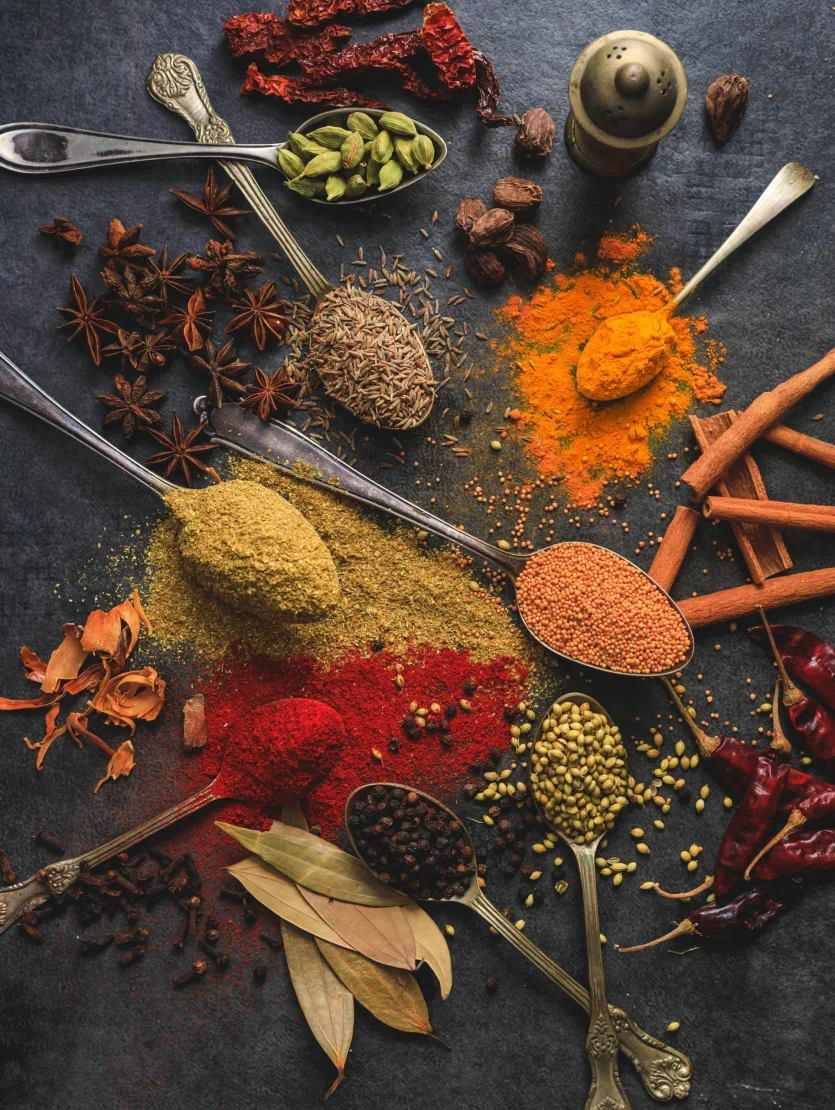our kitchen spices aren’t just about taste — they’re tiny packets of natural medicine. For generations, Indian households have relied on spices to fight illness, improve digestion, and keep the body resilient. Today, research confirms that certain spices contain powerful plant compounds that actively support the immune system, reduce inflammation, and help the body combat infections.
Let’s uncover the top immune-friendly spices, how they work, and simple ways to use them daily.
1. Turmeric – The Golden Immunity Shield
Main Active Compound: Curcumin
- Works as an anti-inflammatory, antioxidant, and antimicrobial agent.
- Helps activate immune cells that fight off infections.
- Supports faster recovery from seasonal illnesses.
Best Ways to Use:
- Stir ¼ teaspoon turmeric with a pinch of black pepper into warm milk for a calming bedtime drink.
- Add to soups, curries, or smoothie blends.
Scientific Insight:
A 2021 Frontiers in Immunology review found curcumin to be a strong immune modulator, capable of reducing oxidative stress and supporting healthy immune pathways.
2. Black Pepper – The Nutrient Absorption Expert
Main Active Compound: Piperine
- Dramatically increases the body’s absorption of curcumin and other nutrients.
- Contains its own antioxidants that neutralize harmful free radicals.
- Helps balance gut microbes, indirectly aiding immunity.
Best Ways to Use:
- Sprinkle freshly ground black pepper over cooked food.
- Pair with turmeric in meals for a synergistic boost.
Scientific Insight:
A Planta Medica study showed that piperine can enhance curcumin absorption by up to 2,000%, making it essential in turmeric-based remedies.
3. Ginger – The Anti-Inflammatory Root
Main Active Compounds: Gingerols & Shogaols
- Naturally reduces inflammation in the body.
- Exhibits antiviral and antibacterial activity.
- Supports digestive function, which plays a major role in immune health.
Best Ways to Use:
- Boil fresh ginger slices in water for a soothing tea with lemon and honey.
- Grate into stir-fries, dals, or chutneys.
4. Cinnamon – The Warming Immunity Friend
Main Active Compound: Cinnamaldehyde
- Inhibits the growth of harmful bacteria and fungi.
- Rich in antioxidants that protect cells from damage.
- Helps regulate blood sugar, which indirectly benefits immunity.
Best Ways to Use:
- Sprinkle over oatmeal, fruit, or yogurt.
- Blend into herbal teas or milk-based drinks.
5. Garlic – The Natural Infection Fighter
Main Active Compound: Allicin
- Stimulates immune cells to respond faster to infections.
- Can help shorten the duration of colds and flu.
- Also supports heart health alongside immunity.
Best Ways to Use:
- Crush raw garlic and let it rest for 10 minutes before cooking to activate allicin.
- Mix into chutneys, spreads, or lightly cooked vegetable dishes.
Tips to Get the Most Out of Spices
- Use fresh or whole spices when possible — they retain more active compounds.
- Pair fat-soluble compounds like curcumin with healthy fats (ghee, coconut oil) for better absorption.
- Include a variety of spices in meals to get a broad spectrum of phytonutrients.
Final Takeaway
Turmeric, black pepper, ginger, cinnamon, and garlic are more than just flavor enhancers — they’re natural allies for your immune system. Adding them consistently in moderate amounts to your meals can help your body fight infections, reduce inflammation, and stay resilient year-round. Remember, their benefits build up over time, so daily use matters more than large, occasional doses.
✅ References
- Hewlings, S. J., & Kalman, D. S. (2017). Curcumin: A Review of Its Effects on Human Health. Foods.
- Srinivasan, K. (2007). Black Pepper and Its Bioactive Compound Piperine. Critical Reviews in Food Science and Nutrition.
- Daily, J. W., et al. (2015). Efficacy of Ginger for Treating Inflammatory Conditions. Journal of Medicinal Food.









